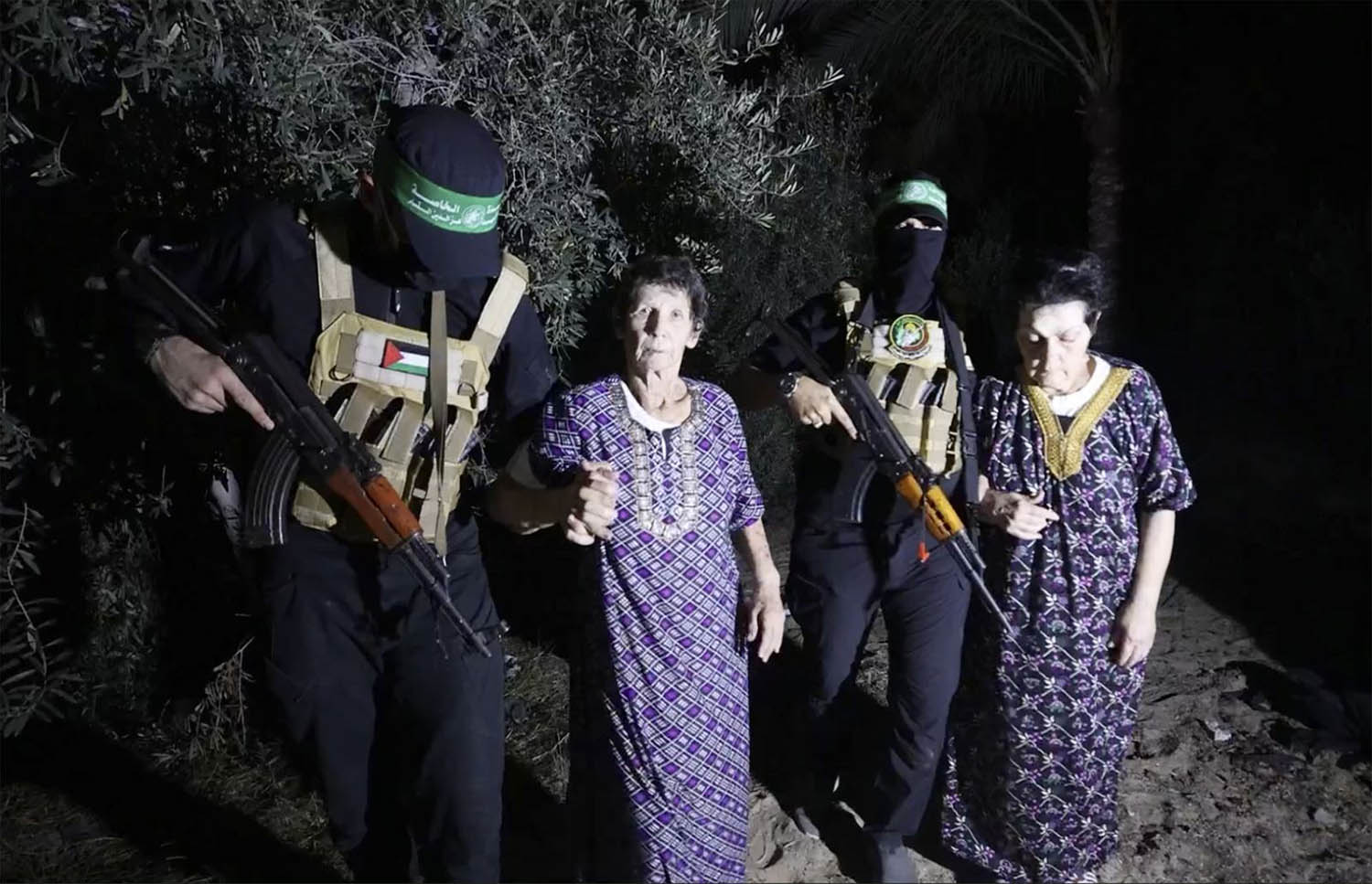
The Gulf state has played a pivotal role in securing the release of American and Israeli hostages – but a reckoning may follow the Israel-Hamas war
When the first hostages taken by Hamas on 7 October were released last week, Joe Biden released a statement thanking “the government of Qatar and the government of Israel for their partnership”. Two more elderly hostages were released on Monday; Qatar, once again, was involved.
So what? Qatar has an unusual position in Middle East diplomacy, sometimes uncomfortably straddling political lines.
The small emirate is host to the largest US military base in the Middle East, Al Udeid, while also hosting the political office of Hamas. It was from that office in Doha that Ismail Haniyeh, the leader of Hamas, reportedly watched the deadly 7 October attacks.
- Unlike other Gulf states, Qatar has not normalised relations with Israel, although it maintains lines of communication.
- After 7 October, the Qataris and Americans immediately started working on releasing hostages, something Anthony Blinken, the US secretary of state, alluded to on a visit to Doha at the start of the conflict, before any hostages had been released.
- Rishi Sunak met Qatar’s emir last Friday in the Saudi capital Riyadh and thanked him for the country’s efforts to free British hostages, suggesting more releases may be on the way.
Who you gonna call? These mediation efforts are nothing new. Qatar has built its foreign policy on balancing between western allies and those hostile to US interests, in particular Iran. Such a juggling act is both strategic, because it gives a small country options in a dangerous region, and a necessity: Qatar shares the world’s largest gas field with Iran.
- Doha mediated a landmark prisoner swap between Iran and the United States in September this year, which saw five US citizens return home, in return for five Iranian citizens and the unfreezing of billions in Iranian funds.
- The Taliban had an office in Doha, even during their long insurgency against the US military in Afghanistan. It was in Doha where, earlier this summer, US officials held their first face-to-face talks with Taliban representatives.
An Arab Janus. Not everyone loves this balancing act. Hosting Hamas leaders at a time when Israeli citizens have been killed and kidnapped is politically unpalatable. Even Qatar’s neighbours wish Doha would fall in line.
- After the Egyptian army toppled Mohammed Morsi in 2013 and outlawed the Muslim Brotherhood, some leaders sought refuge in Qatar. They were later asked to leave, as relations with Gulf neighbours deteriorated.
- Saudi Arabia led a four-year blockade of the country, ending two years ago, arguing that Doha’s links with the Muslim Brotherhood were a danger to the region.
Yet these unsavoury associations have proved vital to Qatar. “These relationships with the Taliban or Hamas or Iran have, from Doha’s position, validated their ‘middle mediator’ role,” says Dr Sanam Vakil, director of the Middle East and North Africa Programme at Chatham House. “It’s proved useful for the United States to have Qatar be the go-between.”
The day after Hamas. With so many dual citizens held by Hamas as hostages, western countries are understandably keen to keep open the channels of communication. But what happens after the Israeli war on Hamas is difficult to predict.
Speaking on his visit to Qatar, Blinken said he’d made it clear “in all of my conversations throughout this trip that there can be no more business as usual with Hamas”.
What that means precisely will depend on several factors, including how the war ends and who governs Gaza after Hamas. Vakil thinks there will be questions asked about “whether it will be good for Qatar to relinquish these relationships”.
“I anticipate there will be compromises that Qatar will have to make going forward,” she says.
For Doha, being the region’s mediator is a coveted political niche – there is much to be gained from being the first person the Americans, the Israelis or the Palestinians call. It’s the Arab answer to the question Henry Kissinger once posed: “Who do I call when I want to call Europe?”
But it is also a dangerous one that led to its Gulf neighbours turning away – and one which, when the war is over, may lead to the United States rethinking its relationship with the Arab Janus.










